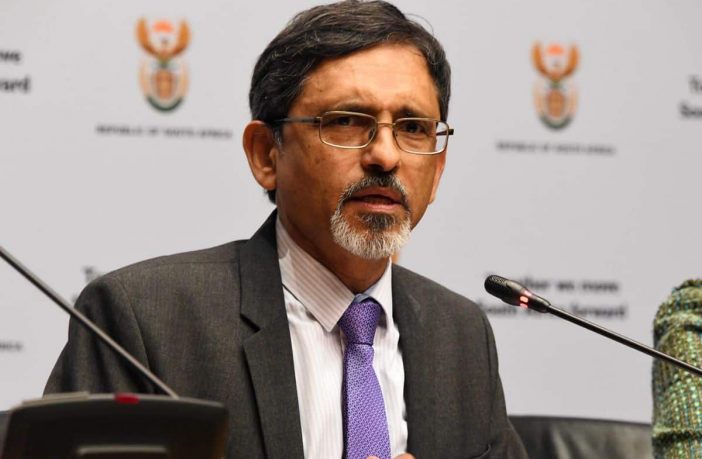- “Hydrogen is potentially the missing piece in the puzzle towards attaining net zero emissions by 2050, in line with the Paris Climate Agreement of 2015.”
- “Hydrogen can decarbonise a greater range of sectors compared to renewable electrical energy alone.”
- South Africa’s Minister of Trade, Industry and Competition, Mr Ebrahim Patel was speaking at the 2nd Renewable Hydrogen and Green Powerfuels Webinar for South Africa, hosted by EE Business Intelligence and the British High Commission to South Africa yesterday.
The minister emphasized that the hydrogen economy could provide South Africa a just transition with the potential to decarbonise various industry value chains, and provide security of energy supply. It can also contribute towards the achievement of the Sustainable Development Goals.
“There is a growing international interest and momentum in green hydrogen for the production of clean energy. This is a key factor involved in hydrogen’s use for solving daunting decarbonisation challenges, and transforming high-emitting industries, such as steel, cement, transport and petrochemicals, towards cleaner production.
South Africa is well positioned to becoming an exporter of cost-effective green hydrogen to the world. The country has a rich endowment of renewable resources of solar, wind and biomass for power generation, together with the technological capabilities and skills around the Fischer-Tropsch process, and access to platinum resources, places the country at an advantage for developing the green hydrogen value chain, and being a key supplier into the global hydrogen market.
The minister highlighted the feasibility study to develop a hydrogen valley from the PGM mines in Limpopo, stretching along the industrial corridor from Johannesburg, all the way down to Durban. The study, which is driven by the Department of Science, Technology and Innovation, will identify tangible opportunities to develop hydrogen hubs and infrastructure that can supply industrial users and fuel cell electric vehicle end-users. Read more
“As part of government’s strategic beneficiation objectives, the DTIC is working with other departments, with the Industrial Development Corporation (or the IDC as we call it) and with industry, to support the hydrogen economy and fuel cell developments. The private sector is absolutely critical in driving this. Our role as government is to support and enable this, to be there as a cheerleader, and to back the emergence of technologies and cost-effective ways of rolling this out.”
“I have further mandated the IDC to look actively to partner with the private sector in funding opportunities across the green hydrogen value chain, with a view to stimulating early adoption and creating traction, so as to fast-track the development of a viable and inclusive local green hydrogen economy.”
At the same event, Sasol announced that it will explore green hydrogen production through partnerships with the likes of Toyota. Read more
Author: Bryan Groenendaal











